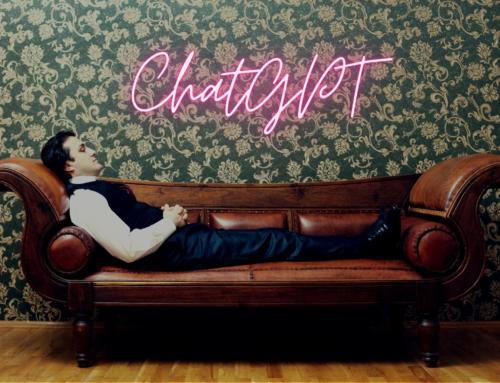If you have doubts about being CEO, fire yourself.
That’s what I (almost) did once.
It was just before a board meeting.
This one marked the second consecutive gathering of our directors, where I was delivering bad news.
Our sales were down, we were on the verge of losing our largest customer, employee engagement was low, and we were running out of money.
I had a dinner scheduled with two of our lead investors.
I was exhausted, but I finished my meal and let it out.
“Guys, I need to talk to you about something.”
“What’s on your mind, John?” They replied.
“I don’t very much like missing my goals constantly. With all the challenges we’re facing, I can’t help but point a finger at myself. If you asked me to step down, I wouldn’t blame you.”
They turned and looked at each other, then one of them signaled the waiter.
“We’re going to need more wine.”
After three more glasses of grape juice arrived at the table, they surprised me.
“John, let me tell you a story,” began one of them.
He explained how one of their best CEOs went through a life-threatening phase of his venture. They signed one of the biggest deals in the history of the company. About a year later, they were in big trouble.
“That deal nearly killed that company,” the board member explained.
“And you know what? He got through it and saw the best growth the company had ever seen,” he ended the tale.
The other board member looked at me with empathy and shared his personal experience sitting at the helm of a company under duress.
“Hang in there, bud, we will not be accepting your resignation tonight,” he said softly.
They were right.
When things were tough, I looked in the mirror and focused on all the things I did wrong.
Has this happened to you?
I know I am not alone. I have heard it from other CEOs.
Ben Horowitz shared his lessons in his best selling book, The Hard Thing About Hard Things.
Perhaps the most important thing that I learned as an entrepreneur was to focus on what I needed to get right and stop worrying about all the things that I did wrong or might do wrong.
When I read that book, so much resonated with me.
(If you haven’t read it, save this article and go read it now.)
The truth is that you never really stop hearing those voices in your head.
I hear them today.
The best thing to do, I have found, is to build habits that help you focus on what to do right.

Photo by Nick Fewings on Unsplash
Here are my habits:
(1) Ask myself, “What can I (really) control?”
Most of the time, when things are a mess, there are only a handful of things you can truly control. Think carefully about what those things are.
You can control how you deploy precious capital, whom to hire or fire. You can’t control whether a customer says “yes” or “no” to your value proposition. But, you can control how you train your salespeople to make the pitch.
Invest your time in only those things you can truly control.
(2) Focus, focus, focus — “What is important now?”
By asking myself this simple question, I can quickly get myself and my team focused on the ONE thing we need to invest in to move items forward.
It is easy to “thrash” around when a crisis is underway. You’ll get pulled in multiple directions by your team. Everyone will have a different perspective on what’s important.
But, having focus is about inverting the question, “what is NOT important right now?”
(3) Take time to reflect — time for solitude.
Those voices (in your head) can be loud and demanding. I find that taking time away from the office on “journeys of solitude,” and reflection helps me to put things in perspective.
I can’t tell you how many times it has worked for me.
All the ideas in my head seem to settle into a crisp plan.
Finding some solitude need not require a multi-hour plane ride.
I sometimes take walks listening to my favorite podcast. And, bang, just like that, those new ideas find their way to my frontal lobe.
(4) Journal every day. Clear the mind.
I now journal every night without fail.
(This is something new I am trying. Thanks for the idea Sangram Vajre and Promise Phelon.)
I write down thoughts about my role as CEO, my personal life, and anything that was on my mind that day. I usually open with a one-liner about the day.
For instance, I might start with, “this was a challenging day.” Then, I will let loose everything on my mind.
It is a cathartic experience — much like the way this blog is for me — that allows me to clear my head of the voices. It is also meditative, allowing me to be present with my thoughts, good or bad.
(5) Ask, “What do I need to know now?” — Be in a continuous state of learning.
Believe it or not, I wake with daily paranoia about being behind on learning.
I love learning new things and need to feel like I am doing so regularly. Perhaps its because in all my roles as CEO, I have taken the helm of an unknown industry.
I knew zilch about insurance before launching an insurtech company — before the term was in vogue.
I am now the captain of a vertically-integrated blockchain and renewable energy company.
(Remember, I am a software guy).
Being humble about my knowledge and my “circle of competence” allows me to open up to a universe of learning. I encourage my teams to do the same by asking, “what do we need to know now?”
(6) Write down mistakes and take time to process them.
I have made many mistakes in my career as a founder, entrepreneur, and CEO.
(I have also made them in my personal life, of course.)
But one thing I enjoy is the learning that comes from those mistakes. I recognize its purpose — those mistakes — to create a better you. So, I have come to embrace them.
I make a conscious effort to write them down, process them, and reflect on my learnings regularly.
(7) Slow down decision-making as much as possible.
I want to improve my CEO craft.
One thing we do often as CEOs is we make decisions. We make thousands of them every week, and trust me; they are not all great ones.
I am currently working on what will be a life-long process making better decisions.
To be a better CEO, I think improving your decisions is at the heart of it.
I now read everything I can about human psychology, mental models, and the process of making decisions.
It is already serving me well.
Aristotle once said: “We are what we repeatedly do. Excellence, therefore, is not an act but a habit.”
I am working on these habits and building more to help me achieve mastery as CEO.


